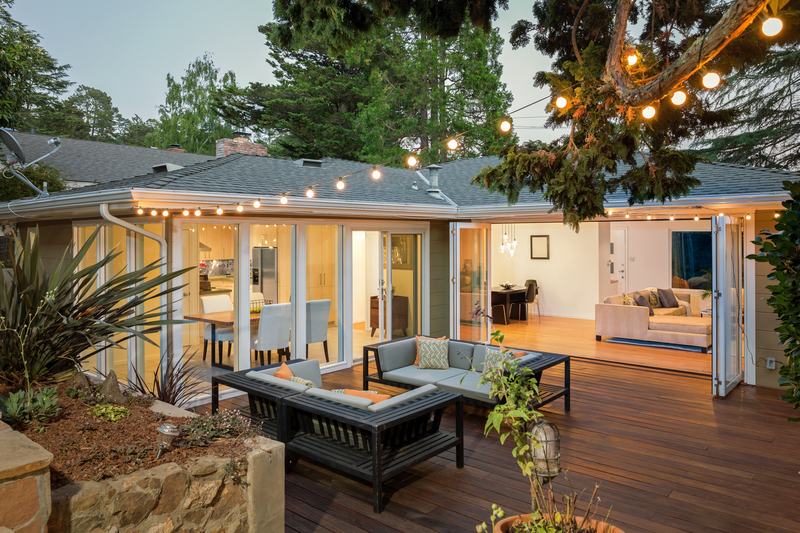Experience solitude with minimalist Zen garden arrangements
Posted on 26/06/2025
Experience Solitude with Minimalist Zen Garden Arrangements
In our fast-paced, ever-changing world, finding a sense of calm and solitude can often feel like a luxury. Yet, there is an ancient tradition that offers a timeless sanctuary of peace and mindfulness--Zen gardens. Rooted in Japanese culture and philosophy, these gardens encapsulate the essence of simplicity, balance, and tranquility. Whether you're looking to craft a sacred space indoors or out, experiencing solitude with minimalist Zen garden arrangements is a profound way to reconnect with inner calm, foster mindfulness, and add beauty to your environment.
Understanding the Essence of Minimalist Zen Gardens
Before embarking on your own Zen journey, it is important to grasp the core principles that drive minimalist Zen garden design. At their heart, minimalist Zen gardens (also known as karesansui or dry landscape gardens) are expressions of harmony and serenity using the barest elements. Instead of lush flowers and ornate decorations, these gardens employ rocks, pebbles, sand, and occasional sparse plants to evoke the natural world and encourage contemplation.
- Simplicity: Every element is purposefully chosen, with nothing superfluous. It's a celebration of the "less is more" philosophy.
- Symbolism: Stones might symbolize mountains or islands, while raked sand suggests rivers or waves.
- Balance: Asymmetrical arrangements and negative space are integral, fostering a sense of calm and spaciousness.
- Natural Materials: Wood, rock, sand, and moss keep the garden grounded in nature's simplicity.
The Origins of Zen Gardens
The tradition of Zen gardening began in medieval Japan, deeply influenced by Buddhist philosophy. Designed for meditation and introspection, these gardens became an essential part of Zen monasteries, inviting monks and visitors alike to experience solitude and reflect on the impermanence of life. Today, minimalist Zen garden arrangements are celebrated worldwide for their profound beauty and tranquil energy.

Key Elements of Minimalist Zen Garden Arrangements
When you seek to experience solitude through minimalist Zen garden arrangements, focus on integrating the following core components. Each element has a special place in creating a harmonious atmosphere that encourages mindfulness and peace.
1. Rocks and Stones
Central to any authentic Zen garden, rocks and stones stand as metaphorical representations of mountains, islands, or living forms. Arrangement is crucial: position stones in odd-numbered groups (threes, fives, or sevens) to create natural asymmetry. Avoid straight lines or unnatural patterns. Instead, think in terms of landscapes sculpted by time and nature.
2. Sand or Gravel
Sand or gravel plates serve not just as fillers, but as canvases for artistic expression. Use a traditional rake to create gentle, flowing patterns--ripples for water, spirals for energy, or parallel lines for the journey of life. The act of raking becomes a meditative practice in itself, reflecting the ephemeral quality of existence.
3. Sparse Plantings
While minimalist Zen garden arrangements rarely include elaborate blooms, small tufts of moss, a dwarf tree, or delicate grasses offer subtle life. Opt for evergreens such as Japanese black pine or subdued ferns to enhance the tranquil ambiance without distracting from the overall simplicity.
4. Water Features (Optional)
Water is seldom part of traditional dry Zen gardens, but a minimalist fountain or a shallow basin can provide soothing sound and symbolically represent purity or life. If space allows, a reflective surface like a still pond encourages quiet contemplation.
5. Natural Boundaries
Bamboo fences, stone pathways, or simple wooden borders help delineate your Zen space while keeping distractions at bay. These natural materials reinforce the sense of enclosure and focus, strengthening your connection with solitude and mindfulness.
How to Create a Personal Minimalist Zen Garden
Bringing the experience of solitude with minimalist Zen garden arrangements into your home or workspace is easier than you might think. Here's a step-by-step guide to help you design a personal retreat for reflection and calm.
Step 1: Select Your Location
- Indoor Spaces: Use a shallow tray, ceramic dish, or wooden box for a desk or tabletop Zen garden. Perfect for small apartments and offices.
- Outdoor Areas: Choose a quiet corner of your garden, patio, or backyard. Even a balcony can be transformed into a sacred space with a small arrangement.
Step 2: Choose Your Components
You don't need many items to start. Select a few stones of varying size, a supply of fine sand or gravel, and a small amount of moss or low-growing greenery. Gather a miniature rake or fork for shaping your landscape.
Step 3: Compose Your Arrangement
- Begin with a Clean Slate: Spread sand or gravel evenly in the base.
- Place Rocks Thoughtfully: Group rocks asymmetrically, ensuring each feels anchored and natural.
- Add Plants Sparingly: Place a few tufts of moss or a single bonsai for a touch of vitality.
- Create Boundaries: Use small pieces of wood or bamboo to define the garden's edge if desired.
Step 4: Engage in Mindful Raking
Once your minimalist Zen garden is arranged, use the rake to create soothing patterns in the sand. Allow your mind to clear as you focus on the gentle repetition--this simple act can become a powerful meditation, connecting you deeply to the present moment.
Step 5: Maintain and Refresh
Part of the beauty of Zen garden solitude is in its impermanence. Feel free to change the arrangement, refresh the patterns, or add seasonal elements as your inspiration shifts. Each redesign becomes part of your journey toward inner tranquility.
Benefits of Experiencing Solitude with Minimalist Zen Gardens
Embracing the spirit of Zen gardens can have profound effects on your well-being, creativity, and outlook on life. Here's how spending time in minimalist Zen spaces renews the mind and spirit:
- Reduces Stress: The act of arranging and raking a Zen garden releases tension and anxiety through rhythmic, mindful movement.
- Boosts Mindfulness: Focusing on simple elements brings awareness to the present, cultivating gratitude and acceptance.
- Enhances Aesthetic Appreciation: The garden's minimalism helps you notice subtle shifts in light, shadow, and material beauty.
- Encourages Reflection: The serenity and symbolism of Zen gardens invite introspection, fostering personal growth and insight.
- Offers a Portable Escape: Even a desktop Zen garden offers a brief escape from workplace chaos without needing to leave your seat.
Variations on Minimalist Zen Garden Arrangements
The journey to experience solitude with minimalist Zen garden arrangements is deeply personal and adaptable. Here are a few inspiring variations to suit different needs and spaces:
Indoor Tabletop Zen Gardens
These small-scale versions are perfect for city dwellers or busy professionals. Use a simple ceramic tray, a handful of sand, and a few polished stones. Add natural incense or soft lighting for a calming ambiance during meditation breaks.
Modern Minimalist Outdoor Zen Retreats
Transform a patch of gravel or lawn into a striking minimalist retreat. Use large rocks for statement features, with carefully placed light fixtures to enhance evening solitude. Keep plantings to a minimum for a crisp, uncluttered look.
Water-Inspired Zen Sanctuaries
If traditional dry landscape gardens aren't feasible, consider adding a small reflective pool or gentle cascading fountain. The sound and movement of water enhance the meditative spirit while maintaining minimalist elegance.
Seasonal or Themed Zen Spaces
Change your garden with the seasons, adding a few red maple leaves in autumn or a single cherry blossom in spring. Some enthusiasts incorporate stones painted with affirmations or symbols for deeper personal meaning.
Tips for Deepening Your Experience of Solitude
- Dedicate Time Daily: Just ten minutes of mindful interaction with your Zen arrangement can make a lasting impact on your emotional state.
- Practice Stillness: Sit quietly by your garden, breathe deeply, and let the sights and textures anchor your thoughts.
- Journal Your Reflections: Use the clarity from your garden meditations to jot down thoughts, ideas, or personal insights.
- Limit Distractions: Place your Zen garden in a low-traffic area or use headphones with soft nature sounds while engaging with it.

Frequently Asked Questions about Minimalist Zen Gardens
How much space do I need for a Zen garden?
Minimalist Zen gardens are highly adaptable. You can create a meaningful arrangement in just a few square feet indoors, or dedicate an entire outdoor space for a larger, immersive retreat.
Are Zen gardens difficult to maintain?
One of the beauties of minimalist arrangements is their low maintenance. Occasional raking, periodic dusting or watering of plants, and the rare reshaping make it an easy but rewarding commitment.
Can children or pets enjoy Zen gardens?
Absolutely! Children often love raking patterns, and tending the sand teaches patience and focus. Keep small stones away from very young children and supervise pets to avoid accidental displacement of garden pieces.
What if I don't have access to outdoor space?
Indoor Zen gardens are not only practical but highly effective. Try placing a small arrangement on your workplace desk, kitchen window sill, or bedroom shelf for moments of reflection wherever you are.
What tools do I need to start?
For a basic setup, gather a tray, some sand or gravel, a few rocks, and a small rake or fork. Over time, you may wish to add quality wood, live moss, or thematic decorations.
Conclusion: Embrace Solitude and Simplicity
In a modern world filled with noise, clutter, and constant demands, the act of crafting or simply maintaining a minimalist Zen garden arrangement can be a refuge for the soul. These humble spaces invite us to let go of excess, find beauty in simplicity, and experience deep solitude every day. Whether seeking a transformative meditation practice or a visually soothing sanctuary, your Zen garden can be a personal haven of peace, mindfulness, and renewed perspective.
Begin your journey towards tranquility--create your minimalist Zen garden today and rediscover the art of solitude with every careful stroke of the rake.

